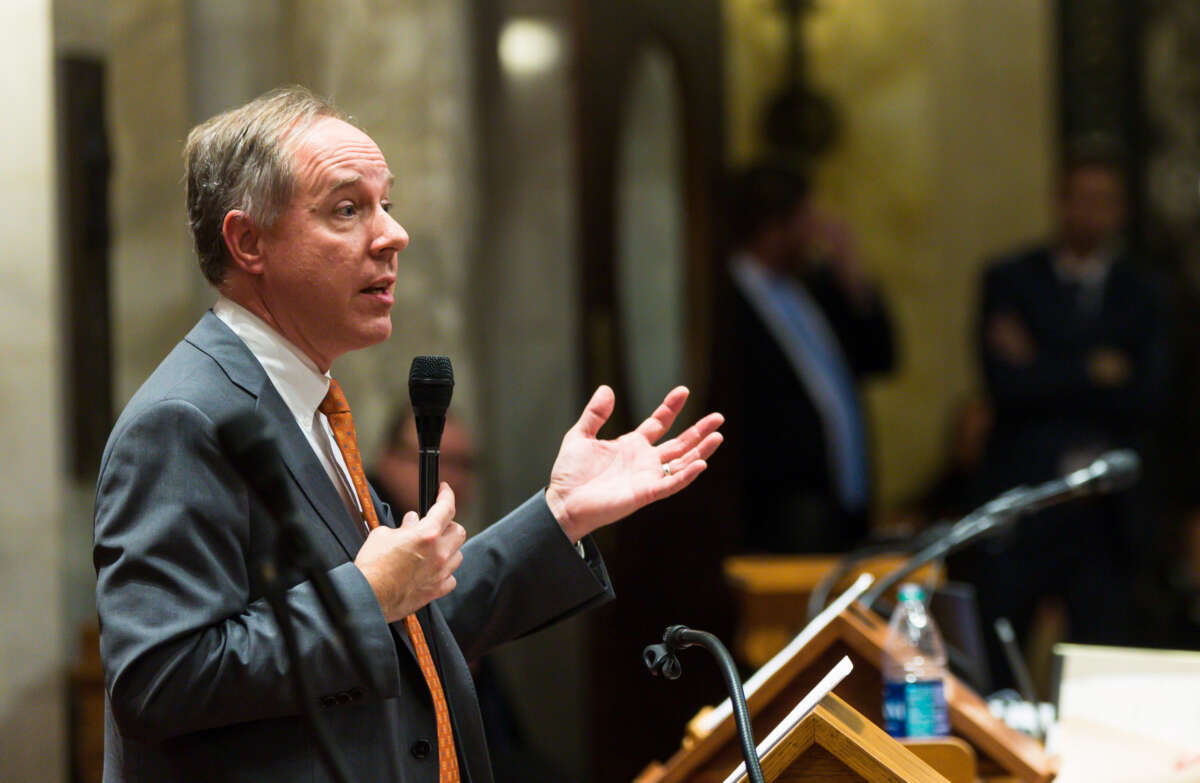Republican lawmakers in Wisconsin have indicated that they will not support efforts to legalize or decriminalize the recreational use of marijuana, despite the fact that such efforts are backed by a majority of the state’s residents.
Lawmakers are considering making marijuana accessible for medical reasons in the state under very specific circumstances. Currently, every state that borders Wisconsin allows some form of medical marijuana use.
Assembly Speaker Robin Vos (R) stated in a recent interview with The Milwaukee Journal Sentinel that he and other Republican lawmakers are seeking to legalize marijuana for medical use. Senate Majority Leader Devin LeMahieu (R) has also indicated that he and other Republicans in the chamber are in favor of such a measure.
But both leaders said they didn’t see a path forward for legislation that would legalize recreational use of the drug — despite the fact that two states bordering Wisconsin already have such measures in place, and a third, Minnesota, appears to be headed in that direction.
LeMahieu and Vos claimed that efforts to legalize recreational marijuana would deter members of their caucus from supporting medical use. LeMahieu has told the Journal Sentinel that he has been “crystal clear this isn’t about a pathway” toward legalization of recreational use, adding that he wants a bill that’s about “making sure that people who suffer with a chronic disease get relief in a way that helps their quality of life be better.”
Vos has criticized Democratic Gov. Tony Evers for pushing for recreational legalization, stating that Evers’s support for the measure would “poison [the] well” by scaring off GOP lawmakers who are on the fence about backing medical marijuana use.
“I’m going to do everything I can to make sure that it is helping the people who have a chronic disease, not creating a pathway or a gateway to recreational marijuana somewhere in the future,” Vos has said. “I think — I know our caucus would not support that. I don’t think it’d be good for the state.”
The Republican leader of the state assembly has also stated that he wants any medical marijuana bill to be very specific, laying out the exact ailments necessary for Wisconsin residents to qualify for a prescription. These restrictions could potentially prevent some of the people who could benefit from medical marijuana from qualifying.
According to a Marquette Law School poll of Wisconsin residents that was published in October, nearly two-thirds of registered voters (64 percent) believe that recreational use of marijuana should be legalized, while just 3 in 10 voters say it should remain illegal. Since 2016, the Marquette Law School poll has consistently found that a majority of Wisconsin residents support legalization.
Evers, who has won the governorship for two straight terms, has proposed including marijuana legalization in his next state budget, just as he did in his first proposed budget as governor.
“The governor ran for re-election — and won — promising to propose legalizing marijuana in his next budget, and he will keep the promise he made to the people of Wisconsin,” a spokesperson for Evers recently said.
The state legislature, which has been controlled by Republicans throughout Evers’s tenure, has blocked every attempt at marijuana reform by the governor so far.
Gerrymandering is largely responsible for Republicans’ ability to block marijuana decriminalization in the state. Although Evers secured around half of the statewide vote in both of the elections he won, the GOP won close to two-thirds of the seats in the state legislature — an outcome that is the result of gerrymandering.
According to researchers at Harvard and George Washington universities, the 2022 election was skewed to favor the GOP at a rate of 16.6 percent, based on maps Republicans redrew after the last Census, making Wisconsin one of the most gerrymandered states in the country. This has made it difficult for Evers to push for any popular legislation in the state, including marijuana decriminalization or legalization.
“Gerrymandering of the redistricting maps have no doubt had an impact on overall efforts” to legalize marijuana, said Jay Selthofner, founder of the Wisconsin Cannabis Activist Network, in an email to Truthout.
Republicans have little interest in legalizing marijuana, Selthofner said, noting that “Republican versions of medical marijuana have had little movement” in recent years.
“If Republicans would govern instead of rule, Wisconsin would certainly have medical marijuana sessions ago and be on the pathway to legalization of adult use marijuana,” he added.
Currently, in the state’s capital city of Madison, residents are able to purchase synthetic THC, even across the street from the state Capitol building. Several other cities across the state have decriminalized pot possession and use of cannabis products.
Join us in defending the truth before it’s too late
The future of independent journalism is uncertain, and the consequences of losing it are too grave to ignore. To ensure Truthout remains safe, strong, and free, we need to raise $31,000 in the next 48 hours. Every dollar raised goes directly toward the costs of producing news you can trust.
Please give what you can — because by supporting us with a tax-deductible donation, you’re not just preserving a source of news, you’re helping to safeguard what’s left of our democracy.
